A cup. And a kitaab. Their rishtaa, I am sure, was made in heaven. If you are not so sure, look at them. Closely. One is lonely without the other. As a naked hanger hung in a closet is without clothes. Or one shoe dangling down the rear of the trucks (to ward off evils) is without the other in whose search it keeps circling the country for years.
A conducive setting or an enabling environment is vital for any relationship. A hospitable host not only nurtures it but nourishes it as well.
Such a host—a cafe—for cup and kitaab is in Silvi Park, sector 64, Mohali. The host’s dedication and devotion to them are apparent from its name: Cup & Kitaab. It is a unique and popular community gathering place, opened in 2020, and features large portions of food, entertainment, conversation—and one unusual restriction.
You are welcome to traverse the walkway to the double-door entrance but leave your laptop at home. Their use is banned by Neeru Khatter, the establishment’s owner and creator, as a way to encourage reading and socializing.
“There are times when our guests are upset because we don’t allow anyone to use laptops in the cafe because I want them to read books, the old-fashioned way,” says Neeru, master chef and one-time English professor. “Sometimes I even thrust books into their hands while they await their orders. The essence of various events that we plan, like Cha and Charcha or Blind Date, is to promote and reward reading,” she said, underscoring her reverence for the written word.
A suspended signboard in the middle of the walkway says the host’s name beneath the artwork, the logo, in which the kitaab opens itself up to soak in the cup’s steaming love. A more prominent signboard showing their torrid affair is visible on the rooftop.
A PILLAR OF BOOKS
Past the live cooking stations on the left and straight ahead in the center of the cafe is a pillar with illuminated wooden spokes radiating from its head and shelves full of books below that guests can pick and read.
“I have cherished reading from childhood as much as I have loved cooking and eating,” confessed Neeru. “It was my dream to build something like this in the wild, in the middle of a natural setting, giving book lovers a cool and quiet place to read while sipping and savoring their favorites.”
With the support of her husband, Anshuvan, Neeru’s dream soon became a reality.
The menu and milieu herald desi and videshi
“Every visitor here is our guest,” Neeru says. “None of them is a customer to us. We love and respect each of them in the spirit of our centuries-old Indian mehman-nawazi
BUILDING A COMMUNITY
Much more than a restaurant, Cup & Kitaab has become a community and cultural hub, attracting students to senior citizens, office workers to business folks, actors, musicians, artisans and artists.
When we sat down to discuss the roots of Neeru’s inspiration and independence, she modestly shared, “As a child and young woman, my pocket money was consistently expended on buying books. Being the youngest and only daughter of two Moga professors’ three children helped. I could get away with anything I wanted. Not so when Anshuvan and I decided to wed after a few years of friendship. But, by then, it was too late for my parents and siblings to expect me to change my habits. I went ahead and wedded the guy I loved and wanted to spend my life with over their objections and against their wishes. Soon they realized I made the right choice, and we became one large happy family.”
She added that married life did not cool her obsession with reading.
“I can’t recall returning home from shopping or grocery without one or two new books. My daughters read voraciously during our several years in Libya and Oman when they were young. We returned to India because of my older daughter’s interest in theater. Once both got phones after coming here, they no longer retained their avid reading habit,” lamented Neeru with a deep sigh.
A HOME AWAY FROM HOME
We were in the middle of our relaxed conversation when Punjabi singer Crowny Singh entered with a friend. They joined the discussion. I was surprised when he looked at Neeru and said, “Mom, I want a chicken sandwich.”
Within a few minutes, the table between us was filled with sandwiches and scrumptious snacks. Crowny picked up a guitar and started to sing.
As I started to enjoy the evening and admire Neeru’s culinary skills, she returned from the kitchen to explain why Crowny called her “Mom.”
“We have a lot of guests in the cafe who are living away from their families,” she said. “We are their extended family. Some call me bebe, some aunty, and others bhabhi. We enjoy the satisfaction of making them feel they are with their family at home away from home.”
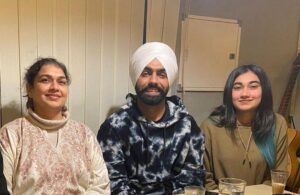
Neeru and Anshuvan count many celebrities among their guests, including Ammy Virk, Tarsem Jassar, Rajvir Jawanda, Maninder Buttar, Ayushman Khurana, Aparshakti Khurana, Bir Singh, Gurshabad, Ali brothers and Gopal Dutt. Standup comedians Parvinder Singh and Gurpal Singh are good friends. Himanshi Khurana, Prince Narula, Yuvika, Fankaar Singh and choreographer Sumit Kumar also visit regularly.
“We do our best to ensure they too can relax and peacefully enjoy doing whatever they came in to do like everyone else,” Anshuvan said.
In just over two short years, Cup & Kitaab has evolved from a readers’ den into a vibrant cultural hub replete with art, craft, music and traditional celebrations such as Vaisakhi, Karva Chauth and Teej.
“Bunty Bains, of Bunty Bains Productions, and B Social owner, was the first person to help me promote Cup & Kitaab,” Neeru emphasized.
So, what’s next?
“Now, I am working on organizing meetings where our senior citizens lacking writing skills will share their life’s stories with young men and women who are talented writers but lack powerful masala to write about,” Neeru concluded.

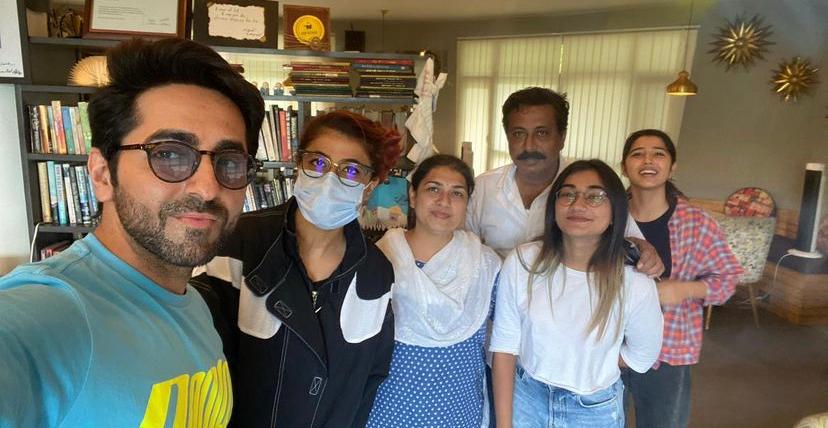

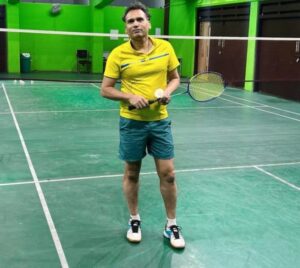

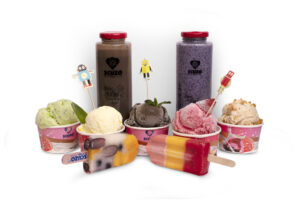
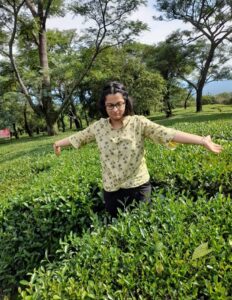
Comments are closed.